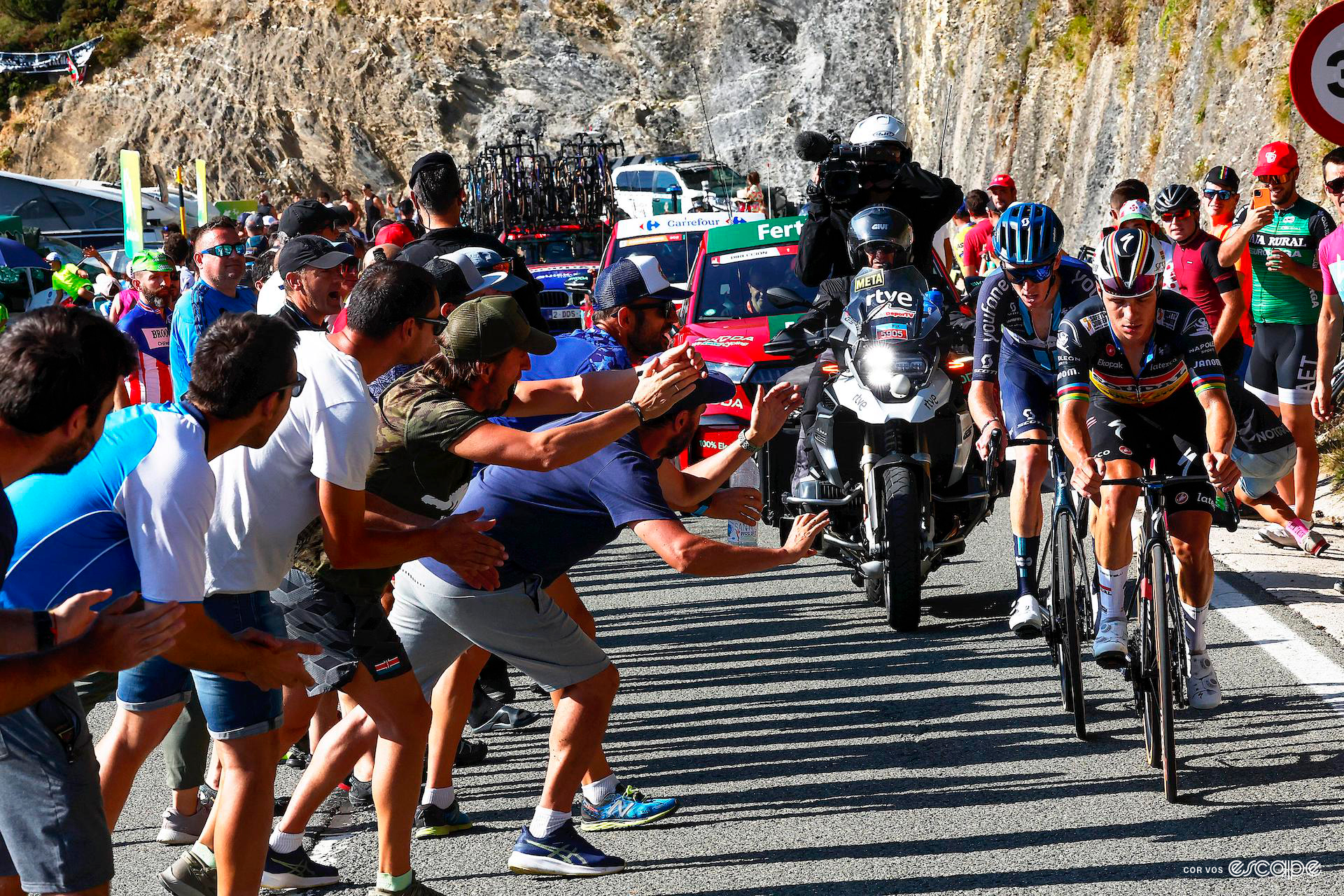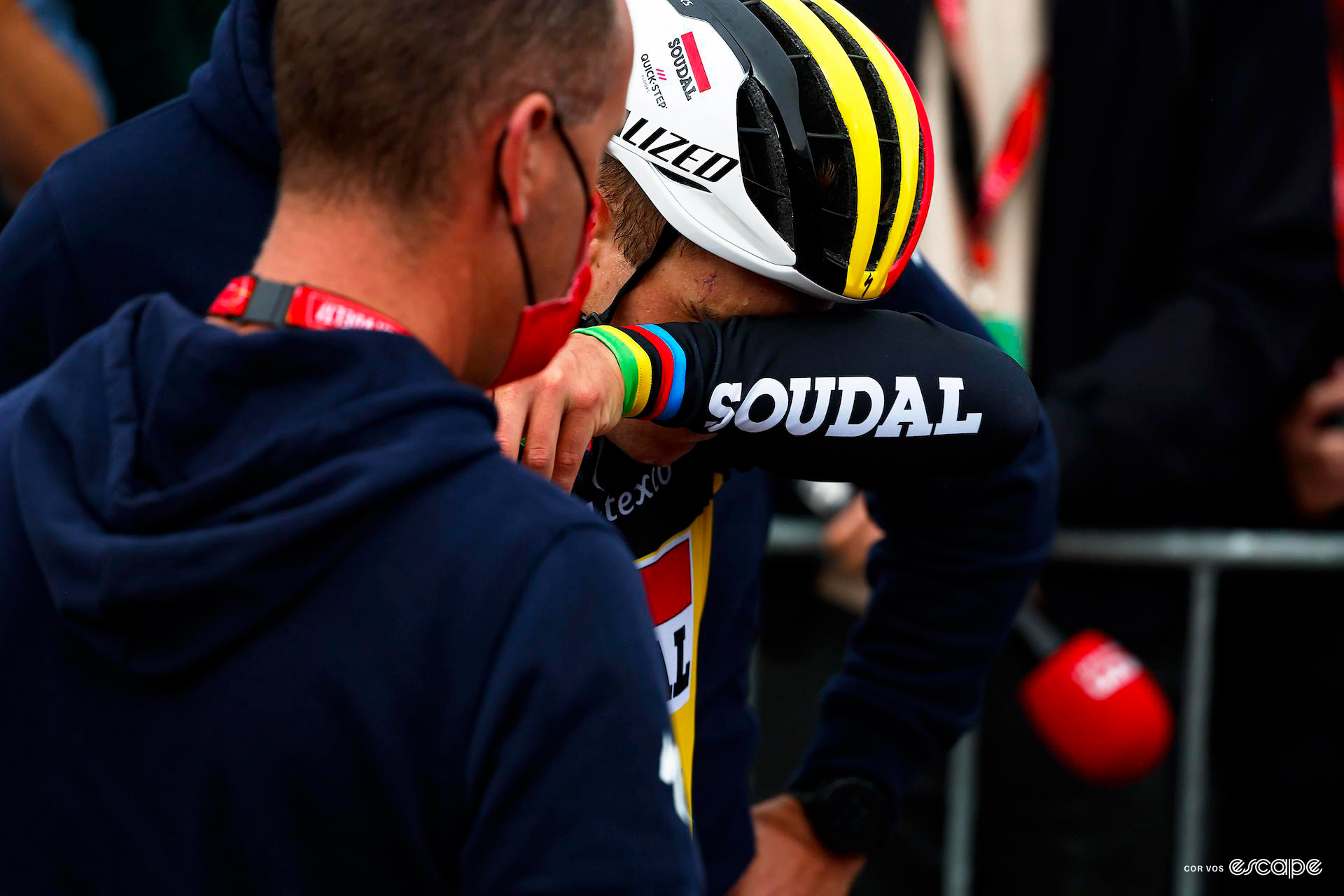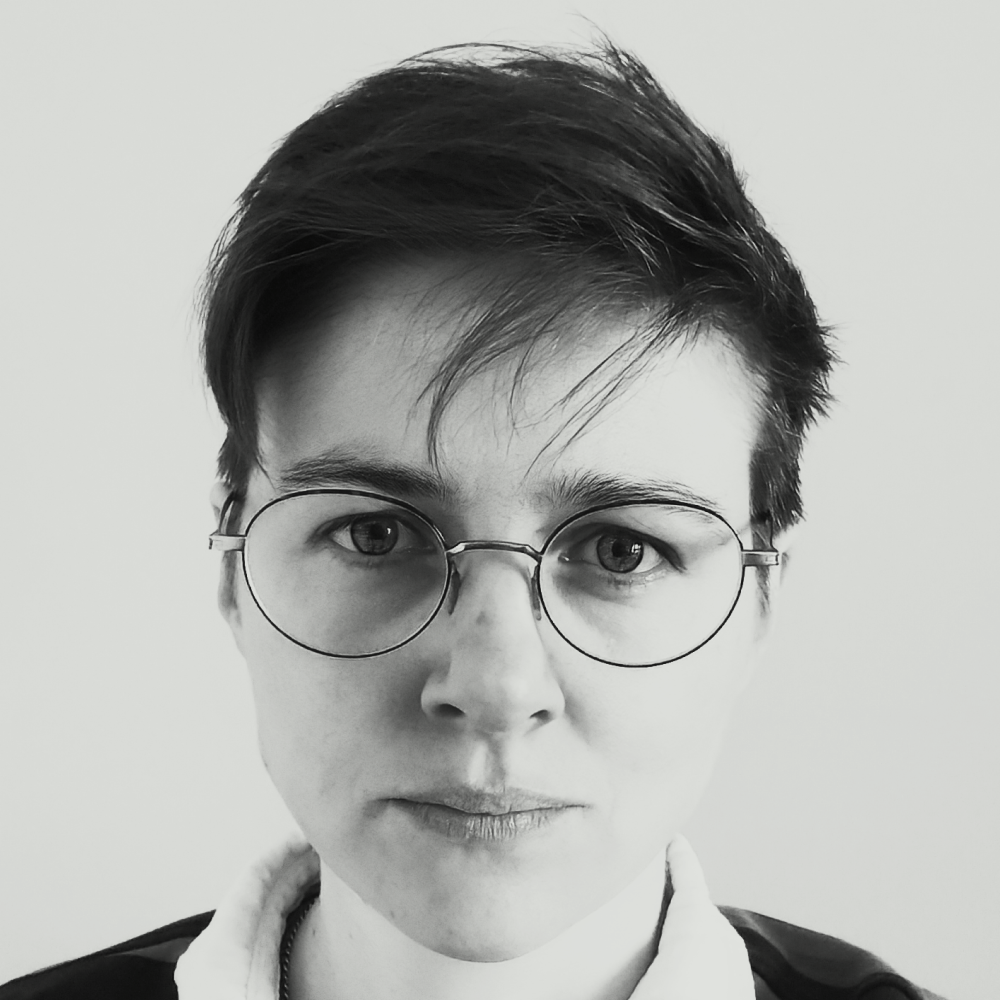Why do we put ourselves through following sport?
This is something I have asked myself quite often over the years. I’ve watched friends and family crying into their pints after football games, whole stands sitting dumbstruck at last-gasp defeat – as a Scotland rugby fan it’s been hard work over the years – and in a sport like cycling where the defeated number sometimes as much as 200, pinning our hopes to success can be a one-way ticket to disappointment. But someone has to win. And that glimmer of hope, not to mention the story behind the glory, is why we keep coming back.
Remco Evenepoel is no stranger to the storied comeback, and that’s afforded him a good deal of respect, not least with last year’s Vuelta a España success. But his public image is not exactly glowing. The combination of youth and being bloody good at what he does has occasionally invited accusations of over-confidence, hot-headedness, arrogance. Some consider him overrated – I’ll admit, I’m still in the camp that believes he’s not a match for Tour de France big two … yet – and he gets a lot of attention from the frenzied media back home in Belgium, not all of it positive.
What’s happened in the past 72 hours, though, has put a rarely seen side of Evenepoel in sharp focus, and by my reckoning, it’s doing him and his image a hell of a lot of good.

It began on Friday’s stage 13 and his precipitous drop from red jersey contention. It was a very, very, very bad day for the defending Vuelta champion.
“I’m okay, but it was a very difficult evening with a lot of tears and crying,” Evenepoel told media at the start of stage 14. “There have been two Grand Tours where I sacrificed everything. At the Giro, I went out with COVID; here, it was just a very bad day, on the day when you needed super legs. I was pretty unlucky in that sense this year.”
Surrounded by teammates, Evenepoel had arrived at the top of the Col du Tourmalet during the podium ceremony. Over the course of four desolate hours being tortured by Pyrenean giants, the 23-year-old had begun to come to terms with the fact that he was racing a very different Vuelta to the one he’d resumed that morning.
Questions were asked as to what had happened. Was he ill? Injured? Did he crack when he finally realised his GC race was done? The answer was simple: he didn’t have the legs. That was that. And his morale was, to borrow a wonderful idiom from the French, “dans les chaussettes” (literally ‘in the socks’, i.e. in very low spirits).
A difficult night followed for the young rider, one that had passed in fits and starts, he was apparently only able to snatch an hour or so of sleep at a time, all the while accompanied by negative thoughts and self doubt. No one would have questioned it had the Belgian champion taken a couple of easy days nestled in the peloton and set his sights on week three, but a power nap on the bus and pep talks from sports director Klaas Lodewyck and his wife Oumi buoyed Evenepoel up before the start of stage 14.
“I wasn’t motivated to start anymore; my big goal had disappeared, and there was a lot of disappointment,” he recalled after stage 14. “But the words Oumi said to me, literally, were, ‘Champions always answer with the pedals, and if you do it, do it for me. And that gave me the motivation to go for it today.”
It was a remarkable and understandably emotional turnaround. You could almost hear the inner monologue being dictated as he sat stony faced on the front of the breakaway: Forget yesterday. You know this stage. Just you and your bike. You’ve got this.

That cycling is as much mental as physical is a well-touted idea, and in the past, perhaps as recently as Friday and his GC capitulation, the head game hasn’t always seemed Evenepoel’s strongest suit. But he was defiant. Saturday’s stage win made a very big statement, and it was eminently clear that this win was a deeply personal and emotional triumph. The impression at the finish line was that the person to whom he needed to prove himself most was looking back at him in the mirror.
Anyone who’s suffered a setback will know that it can take a long time to refocus. But it’s absolutely crucial in cycling, and never more so than for a GC hopeful.
“Hopefully I’ll get at least one more,” he said after his stage 14 win, “And also, I now have a big lead in the mountains jersey. I think that’s a new goal as well, to be in the mountains lead in Madrid.”

Evenepoel has rallied and fast; he’s not leaving any more time for questions, from outside voices or within. With lofty goals for the future, including one day fighting mano-a-mano with Pogačar and Vingegaard at the Tour de France, this sort of ordeal may be more valuable than victory. And by digging deep into the mental reserves, I imagine he’s learned something about himself too.
“On to the next.”
What did you think of this story?

